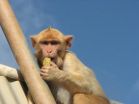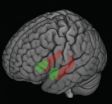(Press-News.org) In quantum physics, momentum and position are an example of conjugate variables. This means they are connected by Heisenberg's Uncertainty Principle, which says that both quantities cannot be simultaneously measured precisely. Recently, researchers have been developing novel techniques, such as "weak measurement," to measure both at the same time. Now University of Rochester physicists have shown that a technique called compressive sensing also offers a way to measure both variables at the same time, without violating the Uncertainty Principle.
In a paper published in Physical Review Letters this week and highlighted as an Editors' Suggestion, the Rochester team explain that when measuring quantum systems each detection event gives a little information about momentum and a little about position, so that information about the whole system can be obtained. Graduate student and lead author Gregory Howland, who carried out the experiment with his colleagues James Schneeloch, Daniel Lum and his advisor Professor John Howell, explains that the compressive sensing approach "economizes the use of this information." Compressive sensing uses the possibility of compressing the signal to be able to recover more information from relatively few measurements, and therefore obtain an understanding of the system.
"We use random on-off patterns to gain a small amount of position information while only minimally affecting the momentum of the photons", explains Howell, professor of physics at the University of Rochester. "In much the same way as weak measurements, the random on-off patterns gain very little information about the position of the photons, but putting all the patterns together, we can learn about the images carried by the light."
Compressive sensing has been widely used in the last decade in signal processing applications such as magnetic resonance imaging and radio astronomy. Howland explained that recently it has even been used in imaging applications, for example, when Howland and his colleagues used the technique to enable a single pixel camera to capture the 3D movement of a tennis ball swinging on a string (see http://arxiv.org/pdf/1309.4385.pdf).
Although the team applied compressive sensing in this case to gain information about momentum and position, they could also have applied it other conjugate variables like time and energy for example. To begin, they illuminated an object with a laser beam. They then used a simple, standard imaging setup to be able to retrieve an image of the object, which gives the position information, and also image the Fourier transform of the object, which gives the momentum information. However, instead of doing a complete, or 'projective' measurement, they used compressive sensing to do the equivalent of a "weak measurement" to get position information. This requires a series of random filters (random on-off patterns) to be applied to the system, which block some of the signal but allow enough of it to pass to be able to image the Fourier transform of the object, which is effectively a "strong" momentum measurement.
"It may be counterintuitive to realize that random measurements can provide the same results as strong, projective measurements and do so more efficiently," says Howland. "Not only that, but in the quantum domain we can do this and also measure the conjugate variable in the same experiment."
INFORMATION:
'Compressive sensing' provides new approach to measuring a quantum system
Researchers show momentum and position of quantum system can be determined using technique from signal processing
2014-06-27
ELSE PRESS RELEASES FROM THIS DATE:
Developmental psychologist explains her life's work studying the mysteries of the mind
2014-06-27
HAMILTON, ON, June 27, 2014—Developmental psychologist Daphne Maurer has spent more than four decades studying the complexities of the human mind.
As the director of the Visual Development Lab at McMaster University and president of the International Society on Infant Studies, Maurer will present her life's work at the Biennial International Conference on Infant Studies in Berlin July 4th.
Over the course of her career she has established a reputation for building new understanding of one of the most challenging and mysterious aspects of human development: how our ...
Monkeys also believe in winning streaks, study shows
2014-06-27
Humans have a well-documented tendency to see winning and losing streaks in situations that, in fact, are random. But scientists disagree about whether the "hot-hand bias" is a cultural artifact picked up in childhood or a predisposition deeply ingrained in the structure of our cognitive architecture.
Now in the first study in non-human primates of this systematic error in decision making, researchers find that monkeys also share our unfounded belief in winning and losing streaks. The results suggests that the penchant to see patterns that actually don't exist may be ...
EARTH Magazine: Rosetta off to decipher a comet's secrets
2014-06-27
Alexandria, Va. — "Hello World." Upon hearing that brief message, scientists at the European Space Agency (ESA) and followers around the world sent up a collective cheer. Rosetta — the ESA spacecraft currently on a 10-year mission to orbit and land on a comet — awoke in January after a three-year hibernation, and was ready to get to work.
The Rosetta spacecraft launched on March 2, 2004, to study Comet 67P/Churyumov-Gerasimenko. In August, Rosetta will enter the comet's orbit. By November, scientists will plant a lander on the comet, in the hope of learning more about ...
Early life stress can leave lasting impacts on the brain
2014-06-27
MADISON, Wis. — For children, stress can go a long way. A little bit provides a platform for learning, adapting and coping. But a lot of it — chronic, toxic stress like poverty, neglect and physical abuse — can have lasting negative impacts.
A team of University of Wisconsin-Madison researchers recently showed these kinds of stressors, experienced in early life, might be changing the parts of developing children's brains responsible for learning, memory and the processing of stress and emotion. These changes may be tied to negative impacts on behavior, health, employment ...
Are conservatives more obedient and agreeable than their liberal counterparts?
2014-06-27
Over the last few years, we've seen increasing dissent among liberals and conservatives on important issues such as gun control, health care and same-sex marriage. Both sides often have a difficult time reconciling their own views with their opposition, and many times it appears that liberals are unable to band together under a unifying platform. Why do conservatives appear to have an affinity for obeying leadership? And why do conservatives perceive greater consensus among politically like-minded others? Two studies publishing in Personality and Social Psychology Bulletin ...
Extinct undersea volcanoes squashed under Earth's crust cause tsunami earthquakes, according to new research
2014-06-27
New research has revealed the causes and warning signs of rare tsunami earthquakes, which may lead to improved detection measures.
Tsunami earthquakes happen at relatively shallow depths in the ocean and are small in terms of their magnitude. However, they create very large tsunamis, with some earthquakes that only measure 5.6 on the Richter scale generating waves that reach up to ten metres when they hit the shore.
A global network of seismometers enables researchers to detect even the smallest earthquakes. However, the challenge has been to determine which small ...
Climate change and the ecology of fear
2014-06-27
Climate change is predicted to have major impacts on the many species that call our rocky shorelines home. Indeed, species living in these intertidal habitats, which spend half their day exposed to air and the other half submerged by water, may be subjected to a double whammy as both air and water temperatures rise. Given the reliance of human society on nearshore coastal ecosystems, it is critical that we better understand how climate change will affect them.
In a recent study published in Global Change Biology, Northeastern University professor Geoffrey C. Trussell, ...
New report evaluates progress of comprehensive everglades restoration plan
2014-06-27
WASHINGTON – Although planning for Everglades restoration projects has advanced considerably over the past two years, financial, procedural, and policy constraints have impeded project implementation, says a new congressionally mandated report from the National Research Council. Timely authorization, adequate funding levels, and creative policy and implementation strategies are needed to achieve restoration benefits and to expedite implementation of the Central Everglades Planning Project. Climate change and the invasion of nonnative plant and animal species further challenge ...
USAMRIID research sheds light on how deadly lassa virus infects cells
2014-06-27
Scientists have discovered that the Lassa virus, which is endemic to West Africa, uses an unexpected two-step process to enter cells. The results, published in today's edition of the journal Science, suggest that the mechanism by which Lassa virus causes infection is more complicated than previously known.
An international team of scientists from the Netherlands Cancer Institute, Harvard Medical School, the University of Kiel in Germany, and the U.S. Army Medical Research Institute of Infectious Diseases (USAMRIID) collaborated on the study, which could lead to new approaches ...
AJMC publishes results showing big data analytics can predict risk of metabolic syndrome
2014-06-27
CAMBRIDGE, Mass. and HARTFORD, Conn. – June 27, 2014 – Research published today in the American Journal of Managed Care demonstrates that analysis of patient records using state-of-the-art data analytics can predict future risk of metabolic syndrome. More than a third of the U.S. population has metabolic syndrome, a condition that can lead to chronic heart disease, stroke and diabetes. These conditions combine to account for almost 20 percent of overall health care costs in the U.S. The study was conducted by Aetna (NYSE: AET) and GNS Healthcare Inc. (GNS), a leading provider ...
LAST 30 PRESS RELEASES:
Exercise and nutritional drinks can reduce the need for care in dementia
Michelson Medical Research Foundation awards $750,000 to rising immunology leaders
SfN announces Early Career Policy Ambassadors Class of 2026
Spiritual practices strongly associated with reduced risk for hazardous alcohol and drug use
Novel vaccine protects against C. diff disease and recurrence
An “electrical” circadian clock balances growth between shoots and roots
Largest study of rare skin cancer in Mexican patients shows its more complex than previously thought
Colonists dredged away Sydney’s natural oyster reefs. Now science knows how best to restore them.
Joint and independent associations of gestational diabetes and depression with childhood obesity
Spirituality and harmful or hazardous alcohol and other drug use
New plastic material could solve energy storage challenge, researchers report
Mapping protein production in brain cells yields new insights for brain disease
Exposing a hidden anchor for HIV replication
Can Europe be climate-neutral by 2050? New monitor tracks the pace of the energy transition
Major heart attack study reveals ‘survival paradox’: Frail men at higher risk of death than women despite better treatment
Medicare patients get different stroke care depending on plan, analysis reveals
Polyploidy-induced senescence may drive aging, tissue repair, and cancer risk
Study shows that treating patients with lifestyle medicine may help reduce clinician burnout
Experimental and numerical framework for acoustic streaming prediction in mid-air phased arrays
Ancestral motif enables broad DNA binding by NIN, a master regulator of rhizobial symbiosis
Macrophage immune cells need constant reminders to retain memories of prior infections
Ultra-endurance running may accelerate aging and breakdown of red blood cells
Ancient mind-body practice proven to lower blood pressure in clinical trial
SwRI to create advanced Product Lifecycle Management system for the Air Force
Natural selection operates on multiple levels, comprehensive review of scientific studies shows
Developing a national research program on liquid metals for fusion
AI-powered ECG could help guide lifelong heart monitoring for patients with repaired tetralogy of fallot
Global shark bites return to average in 2025, with a smaller proportion in the United States
Millions are unaware of heart risks that don’t start in the heart
What freezing plants in blocks of ice can tell us about the future of Svalbard’s plant communities
[Press-News.org] 'Compressive sensing' provides new approach to measuring a quantum systemResearchers show momentum and position of quantum system can be determined using technique from signal processing


